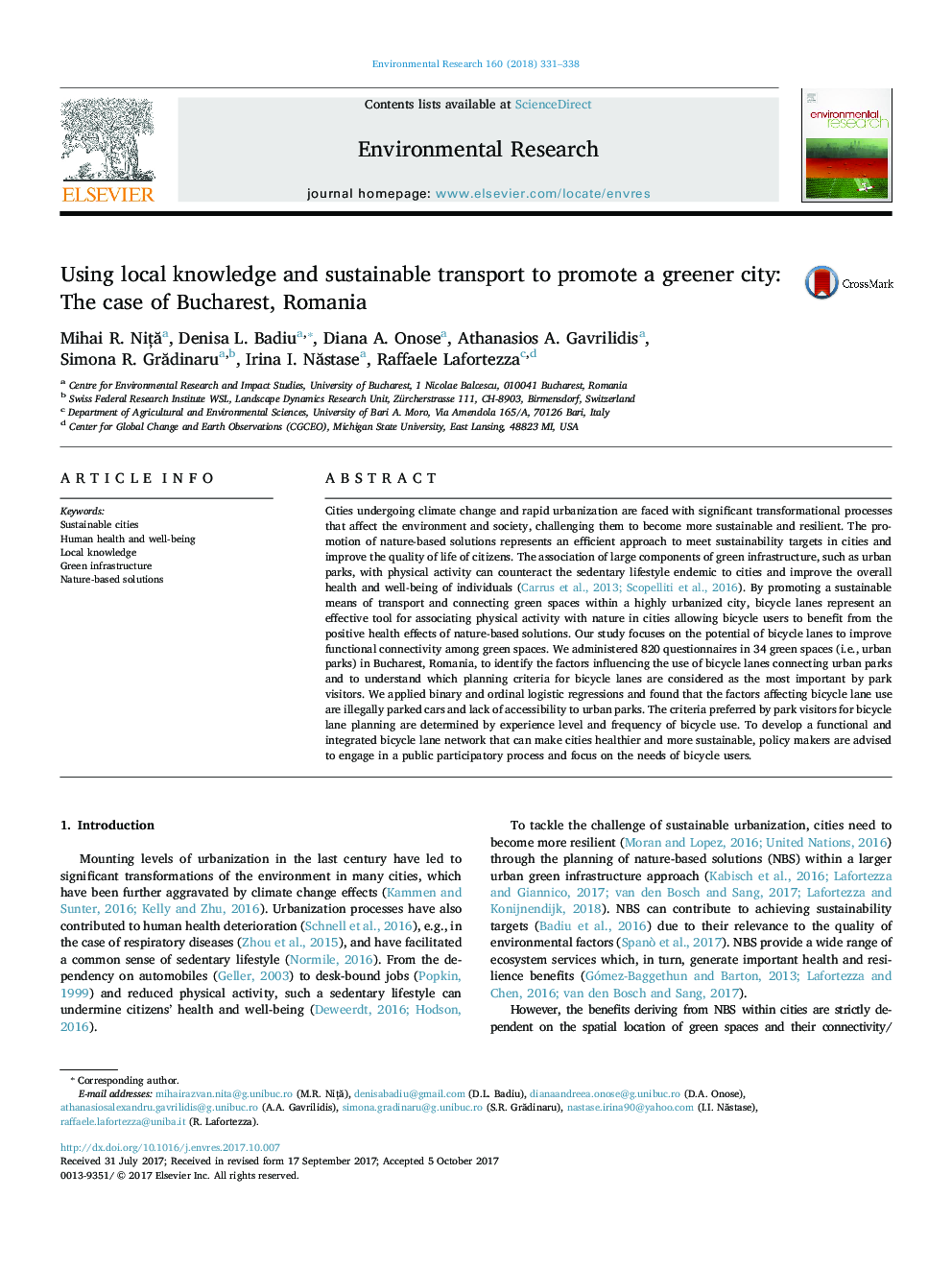| کد مقاله | کد نشریه | سال انتشار | مقاله انگلیسی | نسخه تمام متن |
|---|---|---|---|---|
| 5756098 | 1622543 | 2018 | 8 صفحه PDF | دانلود رایگان |
عنوان انگلیسی مقاله ISI
Using local knowledge and sustainable transport to promote a greener city: The case of Bucharest, Romania
ترجمه فارسی عنوان
استفاده از دانش محلی و حمل و نقل پایدار برای ترویج یک شهر سبزتر: مورد بوخارست، رومانی
دانلود مقاله + سفارش ترجمه
دانلود مقاله ISI انگلیسی
رایگان برای ایرانیان
کلمات کلیدی
شهرهای پایدار، سلامت انسان و رفاه، دانش محلی، زیرساخت سبز، راه حل های مبتنی بر طبیعت،
موضوعات مرتبط
علوم زیستی و بیوفناوری
علوم محیط زیست
بهداشت، سم شناسی و جهش زایی
چکیده انگلیسی
Cities undergoing climate change and rapid urbanization are faced with significant transformational processes that affect the environment and society, challenging them to become more sustainable and resilient. The promotion of nature-based solutions represents an efficient approach to meet sustainability targets in cities and improve the quality of life of citizens. The association of large components of green infrastructure, such as urban parks, with physical activity can counteract the sedentary lifestyle endemic to cities and improve the overall health and well-being of individuals (Carrus et al., 2013; Scopelliti et al., 2016). By promoting a sustainable means of transport and connecting green spaces within a highly urbanized city, bicycle lanes represent an effective tool for associating physical activity with nature in cities allowing bicycle users to benefit from the positive health effects of nature-based solutions. Our study focuses on the potential of bicycle lanes to improve functional connectivity among green spaces. We administered 820 questionnaires in 34 green spaces (i.e., urban parks) in Bucharest, Romania, to identify the factors influencing the use of bicycle lanes connecting urban parks and to understand which planning criteria for bicycle lanes are considered as the most important by park visitors. We applied binary and ordinal logistic regressions and found that the factors affecting bicycle lane use are illegally parked cars and lack of accessibility to urban parks. The criteria preferred by park visitors for bicycle lane planning are determined by experience level and frequency of bicycle use. To develop a functional and integrated bicycle lane network that can make cities healthier and more sustainable, policy makers are advised to engage in a public participatory process and focus on the needs of bicycle users.
ناشر
Database: Elsevier - ScienceDirect (ساینس دایرکت)
Journal: Environmental Research - Volume 160, January 2018, Pages 331-338
Journal: Environmental Research - Volume 160, January 2018, Pages 331-338
نویسندگان
Mihai R. NiÈÄ, Denisa L. Badiu, Diana A. Onose, Athanasios A. Gavrilidis, Simona R. GrÄdinaru, Irina I. NÄstase, Raffaele Lafortezza,
